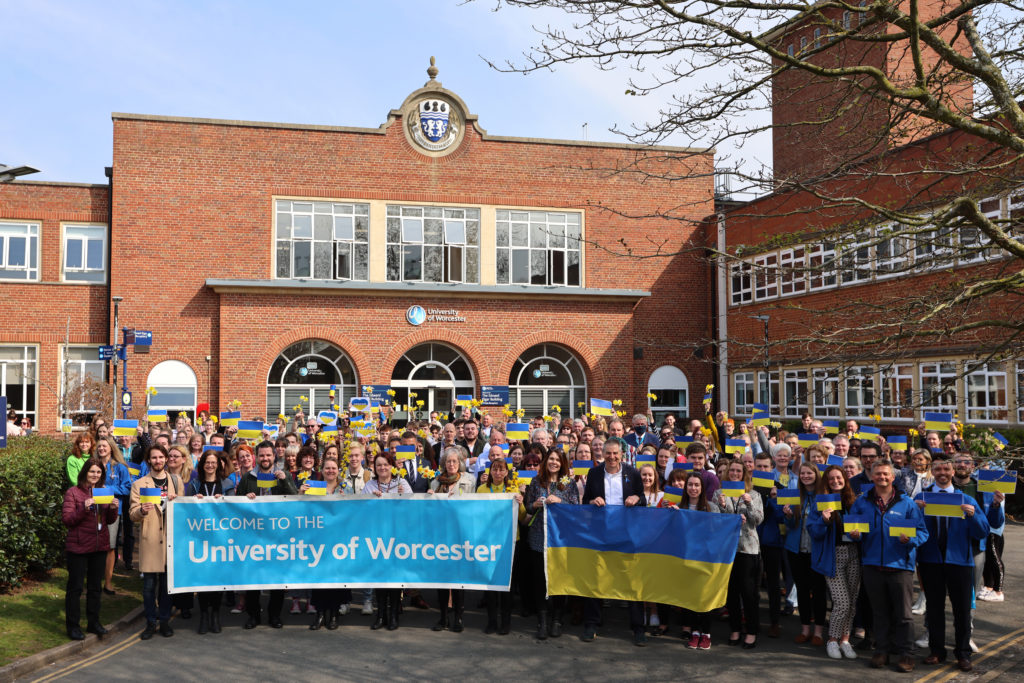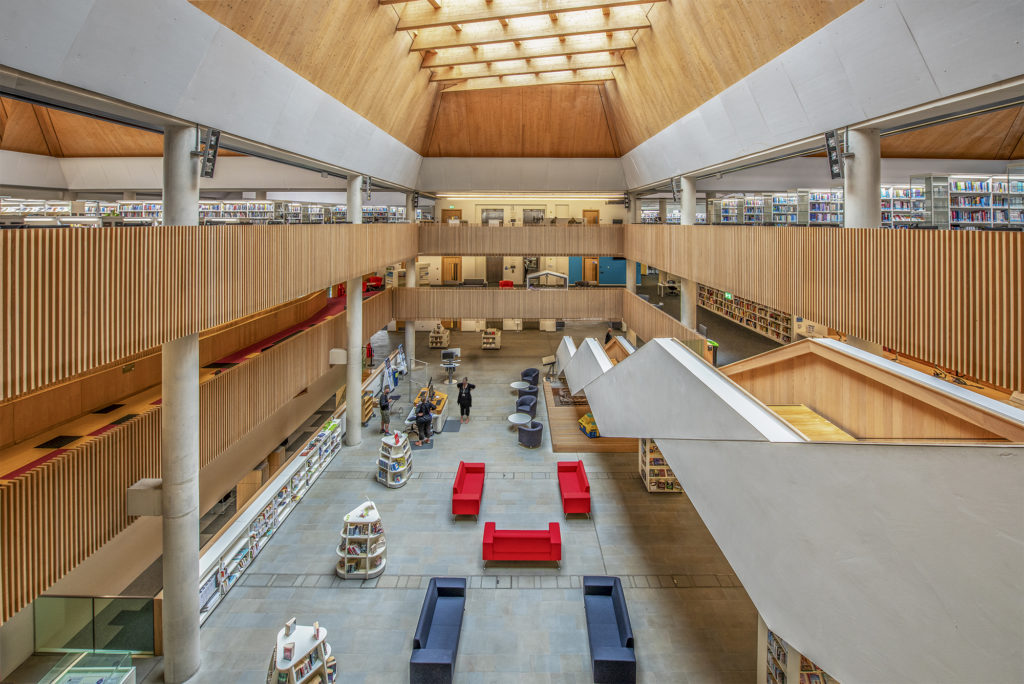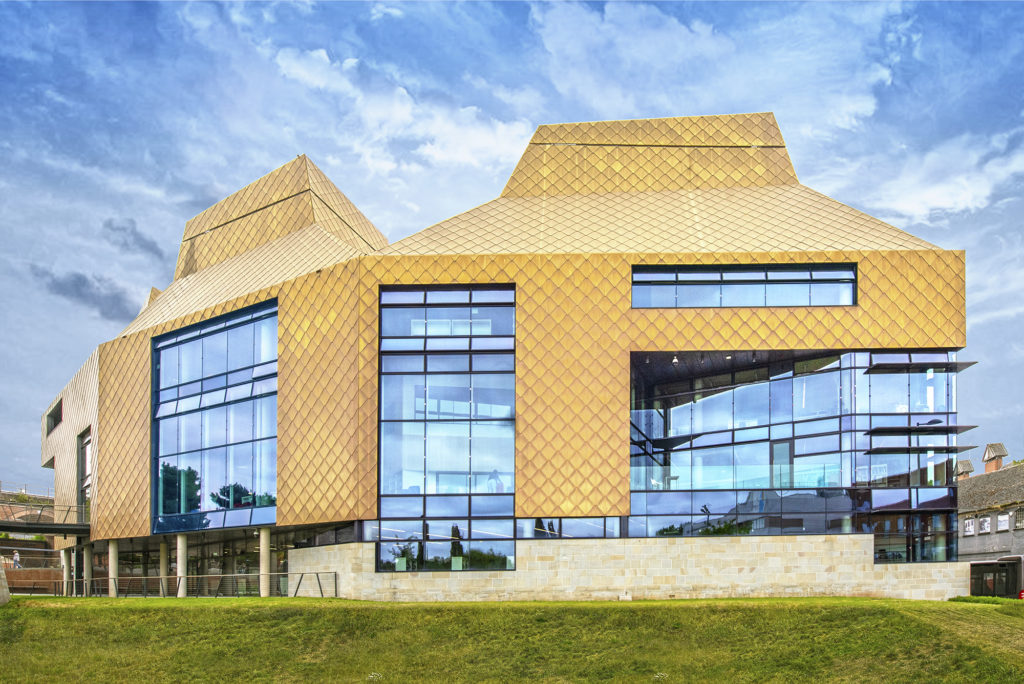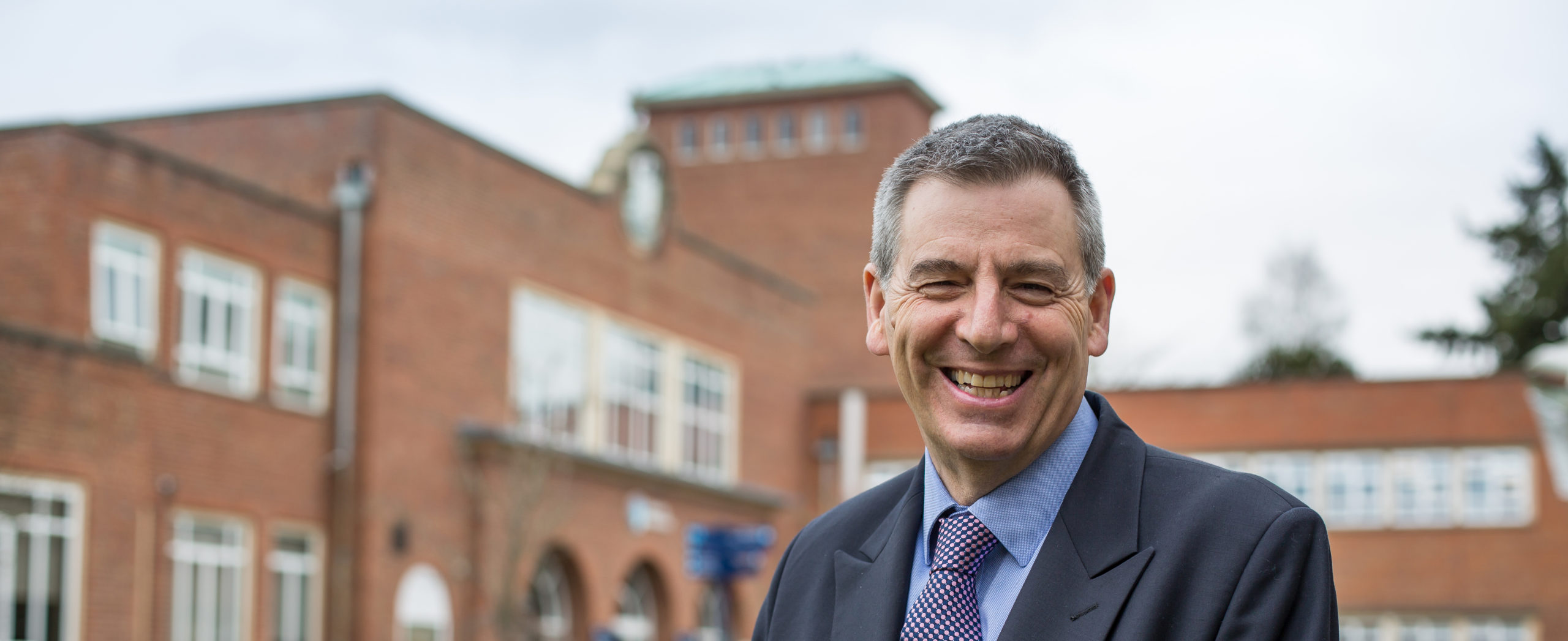Professor David Green (1970) studied Economics at St John’s and worked for the homelessness charity Shelter before pursuing a career in Education. He is currently the Vice Chancellor and Chief Executive of the University of Worcester and was awarded a CBE in the Queen’s New Year Honours List in 2019 for his services to higher education. Here he speaks to us about the values which have underpinned his career.
What makes you so passionate about diversity, equality and inclusion?
I was greatly influenced by feminist writers and some very feisty young women as a teenager. The first demonstration I attended was at Cambridge. It was to remove the prohibition on bringing prams into the then men’s colleges, including St John’s.
I chose to study Economics at Cambridge for idealistic reasons. I wanted to contribute to ending the terrible poverty in what was then called the ‘Third World’, as well as poverty in the UK in ‘inner city’ London. I thought economics was the way to understand what to do. I was influenced by Ajit Singh, Tony Atkinson and Joan Robinson. After graduating, almost all my fellow economists headed to the city. I went to work for Shelter in Scotland as their Campaigns and Research officer.
I became deeply involved in local community life and politics, working with some of the very best people and campaigning to change life for the better.
In Scotland I discovered that the primary cause of homelessness at that time was domestic violence and abuse. I was inspired by Helen Rosenthal, one of the small team in Shelter, who was one of the earliest members of Edinburgh Women’s Aid which was regarded by the police as a subversive organisation who stole ‘women away from their menfolk’. Helen died from cancer at 47, but her work lives on and I was delighted to acknowledge her contribution in 2014, towards the end of Edinburgh Women’s Aid’s 50th anniversary year, when Lynda Bellingham opened Worcester’s National Centre for the Prevention of Violence and Abuse.
I moved from Scotland back to London and eventually lived in Hackney, which was then Britain’s poorest borough as well as its most racially diverse. I became deeply involved in local community life and politics, working with some of the very best people and campaigning to change life for the better.

In 1978 I began lecturing at the South Bank Polytechnic because I wanted to teach ‘night school’. I consider the 13 years I spent teaching in the evenings one of my biggest contributions to society. I continued this as a Head of School, leading over 80 full-time and many more part-time academics and responsible for 2,500 students.
I went on to be Dean of the Leeds Business School at Leeds Metropolitan University and then joined Thames Valley University which had got into very serious trouble following previous leadership. I spent 17 months doing ‘repair work’ there and then was selected to be the Principal of the then University College Worcester. I was really keen to go to Worcester because the potential was so immense.
What have you implemented at the University of Worcester to further these values?
During my time Worcester has earned University title (2005), Research Degree Awarding Powers (2010), been the most improved University for Research Power (REF 2014), more than doubled student numbers and increased turnover fivefold. We were named Sustainability Institution of the Year in 2019 and awarded first class honours in the People and Planet Green League table every year from 2009 to date. In 2020 we were the first University to be awarded the THE award for Equality, Diversity and Inclusion.
All the Halls of Residence built while I have been VC have bedrooms large enough for a wheelchair turning circle. Why shouldn’t a student with a mobility impairment visit their friend on the fourth floor of a building?
We currently have one of the four professional women’s wheelchair basketball teams in the UK based at the University.
In 2003, just after my appointment, I consulted on introducing a promotion scheme. Its application from 2004, together with annual equality impact assessments, played a major role in making Worcester the UK’s best university for fair gender pay. Our median gender pay gap over the last three years has been 0%, -1% and 0%. Our senior team has been at least 50% female since September 2003.
When we decided to build a new sports hall, we purpose designed it to include wheelchair athletes. This led to the creation of the University of Worcester Arena whose inclusive design has become a beacon for disability sport. The Arena hosted the 2015 European Wheelchair Basketball Championships – the first time a university had hosted them. We currently have one of the four professional women’s wheelchair basketball teams in the UK based at the University. Now we are working with the England and Wales Cricket Board to create the world’s first inclusive cricket education centre which will cater for cricketers of all abilities, including those with visual and physical impairments.
I consistently advocate for the University to be deeply engaged with the schools and Further Education Colleges in the region, and champion the value of working in ‘unfashionable areas’ such as Child and Adolescent Mental Health, Dementia, Perinatal Education, Suicide Prevention, Disability Sport and the Prevention of Domestic Violence and Abuse. In the noughties we appointed the first professor in the UK in Perinatal Education and were one of the first to tackle the issue of Dementia Care.
Can you tell us about creating the UK’s only university and public library?
When I took up my post in Worcester, I knew that the County Council’s central library was housed in a beautiful but unsuitable building while our own library was too small. I met Rob Sykes, Chief Executive of the County Council, during my first week and suggested that we work together to create a new library. I had the idea of the community using university facilities whilst I was at St John’s and on appointment at Worcester immediately realised that we had the best children’s library in the region because of our extensive and excellent teacher training – but very few children actually used it and it even closed in the summer holiday for reorganising and refreshing. The University’s librarian, Anne Hannaford, was immediately enthusiastic and proved a tenacious campaigner, as did the newly appointed Deputy Principal (later Deputy VC), Judith Elkin, who had worked as a children’s librarian and is an award-winning children’s author.

Once the concept of a joint library had been developed we spent several years lobbying for funding. We had to buy a factory which occupied part of the site, as well as move the City Council’s refuse vehicle depot. The Hive is actually built on a 2,000 year old rubbish dump – there was some fascinating archaeology done on the site which uncovered a Roman smelting oven as well as medieval bell castings and even a medieval slipper!
We had an architectural competition, and the winner Fielden Clegg Bradley produced a strikingly imaginative design. We went through a great deal of consultation, and Judith and Anne visited the only joint university and public library we could find in San Jose, California to learn what to do and what not to do. In July 2012 HM The Queen opened the Hive. Shakespeare’s marriage bond was on display and the first port of call was the children’s library with its ‘cheese wall’ and story pit. The Library has led us to become an exemplar of a truly civic University.

What are your ambitions for the future?
There is so much to be done to recover from the educational devastation caused by the pandemic. We are promoting a national initiative to train new tutors who will make a great difference to the children who have lost so much.
Worcester was recently chosen to partner Dudley College to bring higher education in health to the town. Dudley is England’s educationally most-deprived borough and this has the potential to be transformative. I want to ensure it is.
I would also like to be part of the great national reforming effort needed to develop a new system for funding higher education which would reduce tuition fee debt very substantially whilst ensuring universities and colleges have the income needed to flourish.
At Worcester I want to ensure that our new Medical School gets the funded places for educating the new doctors who are so desperately needed, and make sure that it becomes a first-class engine for the education of doctors imbued in the ethos of working inter-professionally and holistically.
You can hear more about David’s work on Access by listening to his Fit for Purpose podcast episode, ‘Connecting with local communities’: https://www.fit-for-purpose.org/listen/episode73-professor-david-green

